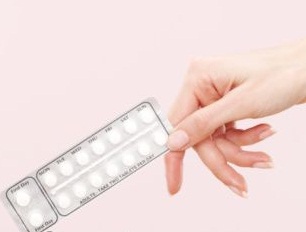PMS stands for premenstrual syndrome and this consists of a set of emotional, psychological, physical and mood disturbances which make women look for pms treatment. These usually occur between the ovulation and the onset of the menstruation flow. The most common symptoms include irritability, crying, depression, oversensitivity, and also mood swings.
There are also some physical symptoms such as fatigue, breast tenderness, bloating, acne and appetite changes. About 80% of all women have some of these symptoms and they are all looking for treatment for pms.
PMS Treatment
Sometimes the treatment of pms is just as challenging as diagnosing it. There are numerous different treatment approaches, and while some of them have no scientific basis, they still seem to help women. Other kinds of pms treatment do have scientific basis, but they do not help all women.
In order to be able to manage the pms symptoms you should adopt a healthy lifestyle that includes exercise, a circle of family and friends that offer support during your cycle, decreased caffeine intake, avoid salt before the menstrual period, reduce alcohol intake, quit smoking and also reduce the intake of refined sugars.
All of these are part of treatment for pms in case of some women. Also there are some studies that have shown that vitamin B6 and E, magnesium and calcium supplements also have a benefic effect on pms symptoms.
Medication
There are different kinds of medication for pms treatment. These include diuretics, oral contraceptive pills, pain killers, drugs that suppress ovarian function and also antidepressants.
As it has been mentioned before, diuretics are used as treatment for pms. These are medications that increase the urine production, this way eliminating the excess fluid from the body. There are numerous nonprescription menstrual products that contain diuretics, such as pamabrom and caffeine. The premenstrual swelling of the hands, face or feet has been treated with Spironolactone, a prescription medication. Nonetheless this hasn’t been effective in case of all patients.
Pain killers are usually used as pms treatment, especially in case of menstrual cramps, pelvic discomfort and headaches. The most effective pain killers seem to be the nonsteroidal anti-inflammatory medications. Examples of such medications are ibuprofen, mefenamic acid and naproxen.
Oral contraceptive pills are said to treat pms because they even out the ovarian hormone fluctuations. The older studies weren’t able to show that these pills actually help with the treatment, but the newer birth control pills are more effective due to their improved hormonal formulations.
In some cases drugs such as danazol have been prescribed to decrease the ovarian hormone production. The downside of such drugs is that they cannot be used for a longer period of time because of the side effects.
Some women found help by using gonadotropin-releasing hormone analogs that completely suppress the ovarian function and are part of a drugs group used to alleviate menstrual pain. These cannot be used as pms treatment for long periods of time because of their negative effect on bone density and an increased risk of bone thinning.




